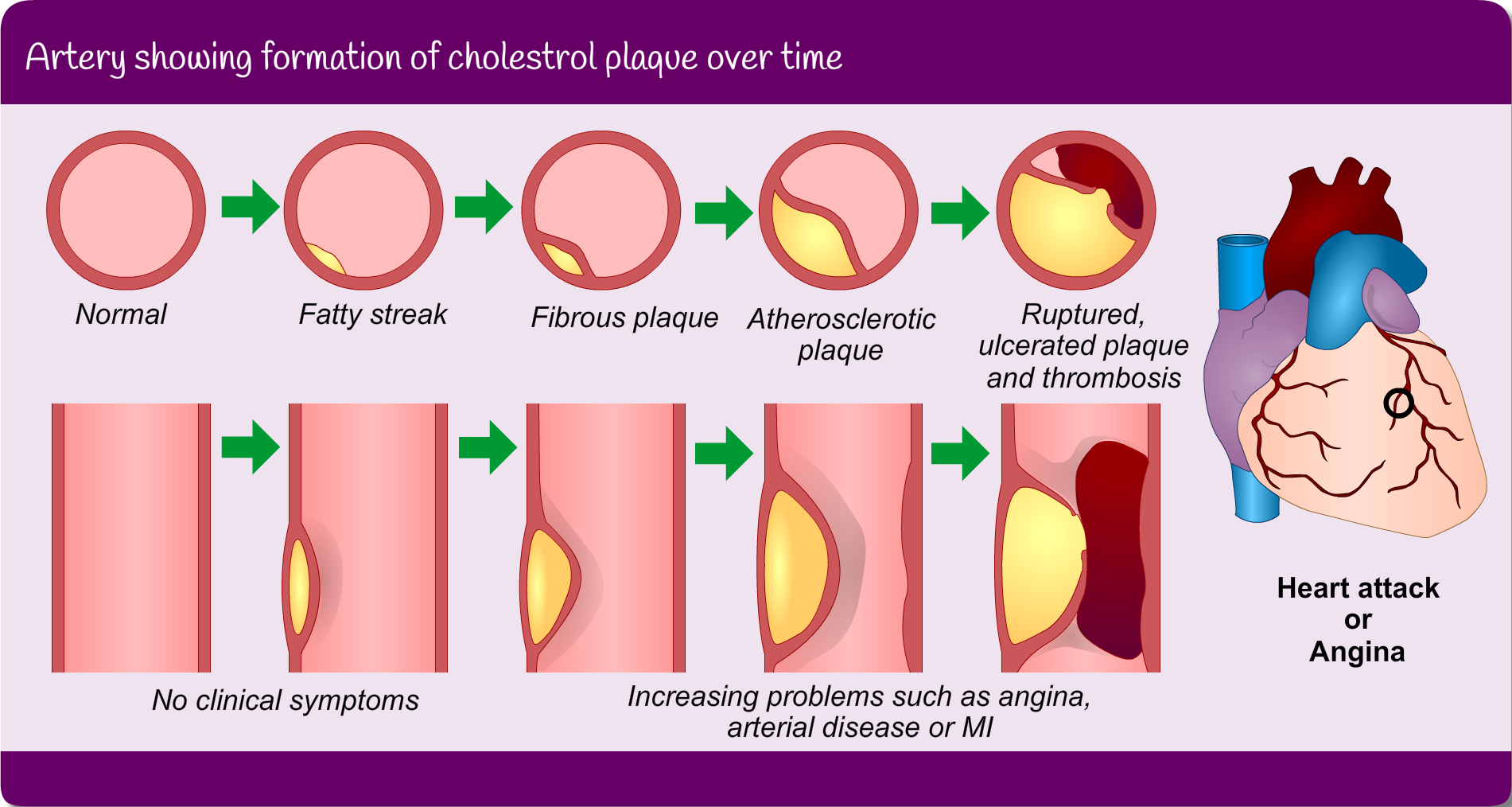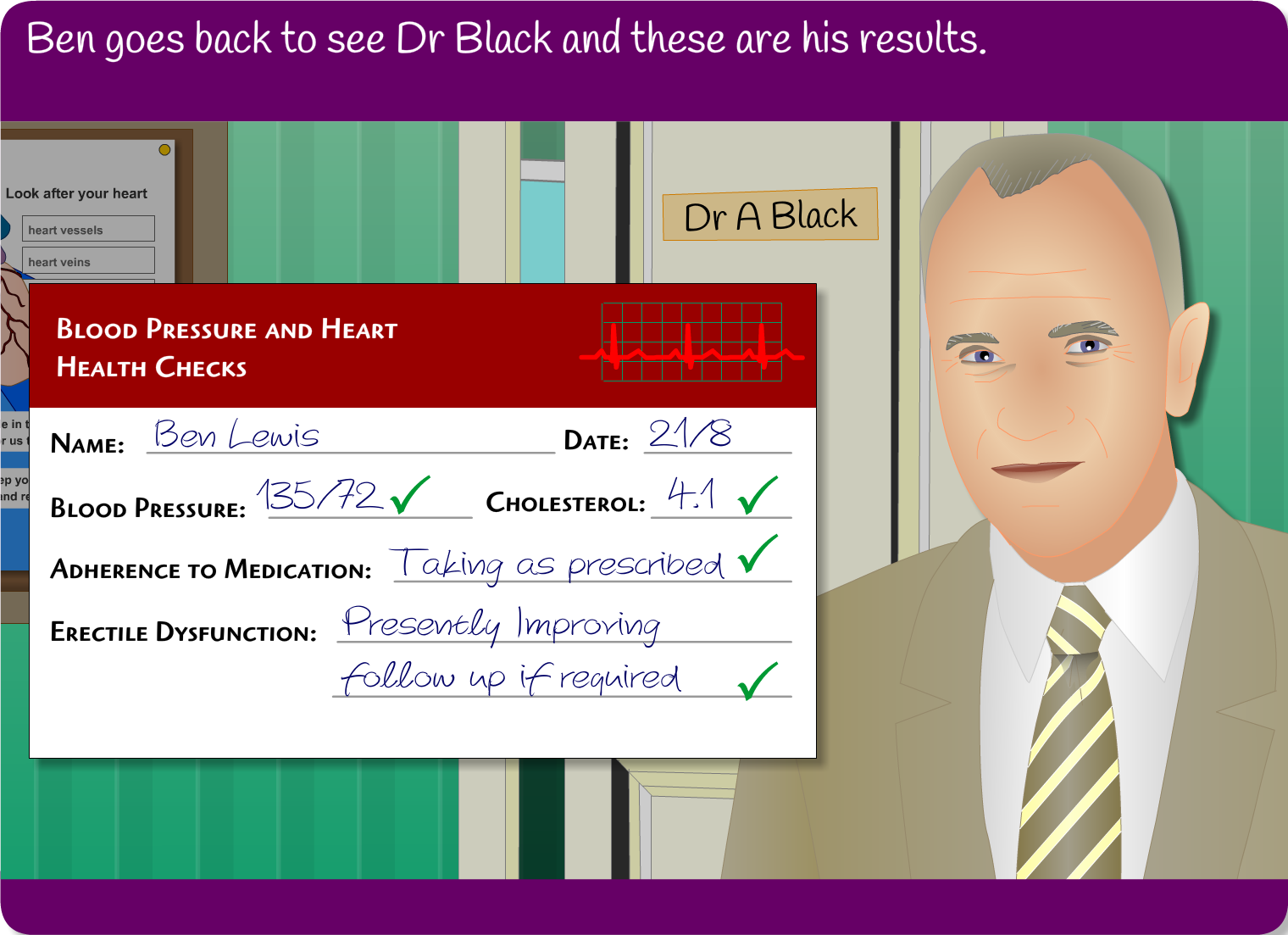Category: HEARTe
Coronary artery plaque

Learning outcomes
This module explores the guidelines and information to the initial and ongoing care of an individual presenting with Acute Coronary Syndrome.
Learning outcomes:
- Define the term Acute Coronary Syndrome
- Describe the assessment and diagnostic process in ACS patients
- Describe pharmacological management of ACS
- Explain the rationale for diagnostic tests and different cardiac interventions in ACS
- Understand secondary prevention of both pharmacological and non-pharmacological management following ACS
Acute Coronary Syndrome (ACS)
ACS is an umbrella term that covers a spectrum of clinical presentations. The common pathology is a ruptured plaque within a coronary artery leading to thrombosis and flow limitation. The exact clinical picture depends upon the site of plaque rupture and the extent of flow limitation.
Introduction

Module Authors
Module Lead
Steve McGlynn, Specialist Principle Pharmacist (Cardiology), NHS Greater Glasgow & Clyde
Module Authors
Dr Paul Neary, Consultant Cardiologist, NHS Borders
Margaret McGuire, NHS 24 Practice Educator, NHS 24
Gillian Donaldson, Lead Cardiac Specialist Nurse, NHS Borders
Joanna Toohey, Cardiology Nurse Specialist, NHS Dumfries & Galloway
Reviewers
Geraldine Brady, Lecturer/senior nurse, NHS Lothian
Avril Morrison, Specialist Chest Pain Nurse, NHS Lothian
Susan Kennedy, NHS Education for Scotland National Coordinator for General Practice Nursing
Louise Peardon, Deputy Director of Advice & Support, CHSS
Marie Hurson, Cardiac Nurse Specialist, NHS Shetland
Contributors
Anne McEwan, Team Leader Vascular Nurse, NHS Fife
Morag Osbourne, Psychologist,NHS Greater Glasgow & Clyde
Louise Peardon, Deputy Director of Advice & Support, CHSS
Carol Mills, Clinical Nurse Specialist, Cardiothoracic Surgery, NHS Lothian
Krista MacKellaig, Staff Nurse, NHS Lothian
4. Acute coronary syndrome
Learning outcomes
This module explores the guidelines and information to the initial and ongoing care of an individual presenting with Acute Coronary Syndrome.
Learning Outcomes:
- Define the term Acute Coronary Syndrome.
- Describe the assessment and diagnostic process in ACS patients.
- Describe pharmacological management of ACS.
- Explain the rationale for diagnostic tests and different cardiac interventions in ACS.
- Understand secondary prevention of both pharmacological and non-pharmacological management following ACS.
General Medical Disclaimer: The information, including but not limited to, text, graphics, images, recommendations, opinions and other material contained on or accessed through this website (or in any module or content accessible through this website) (together “Website”), is intended for general informational purposes only. The information should not be considered as professional medical advice, diagnosis, recommendations or treatment. The information on this Website is provided without any assurance, representations or warranties, express or implied. We do not warrant that the information on this Website is applicable to all healthcare practices, geographical locations, health needs or circumstances. We do not warrant that the information on this module is complete, true, accurate, up-to-date, or non-misleading. You should always seek the guidance of a qualified healthcare professional before making any decisions related to your health or wellbeing. Never disregard or delay seeking medical advice due to something you have read on this Website. The use of or any reliance placed on any information provided on or accessed through this Website is solely at your own risk. If you have any specific questions or concerns about your health, please consult a qualified healthcare provider or other qualified medical professional. Do not rely on the information on this Website as an alternative to medical advice from your doctor or other qualified professional healthcare professional or healthcare provider.
Key messages
Artherosclerosis (hardening of the arteries) affects all arterial beds throughout the body including the penile arteries which can cause problems with erectile dysfunction. However it should not automatically be presumed that it is being caused by CVD. An appointment with a GP where a full medical, social and sexual history as well as appropriate tests should be obtained
- Non-adherence to prescribed medications has a enormous economic cost to the NHS as well as additional morbidity to patient. The health professional should routinely assess adherence whenever medication is prescribed, dispensed and reviewed
- To have a basic knowledge of the major cardiovascular drugs that are used, common side-effects and contra-indications
A few weeks later
Ben has been back to the GP a couple of weeks later. The GP is much happier to learn that Ben is now taking his prescribed medication and continues to feel well.
The GP and Ben discuss his erectile dysfunction again and they both agree a trial of viagra will be suitable. The GP counsels Ben on how to use the drug appropriately and advise him to carefully read the manufacturers information leaflet. He advises Ben to return in a few weeks.



